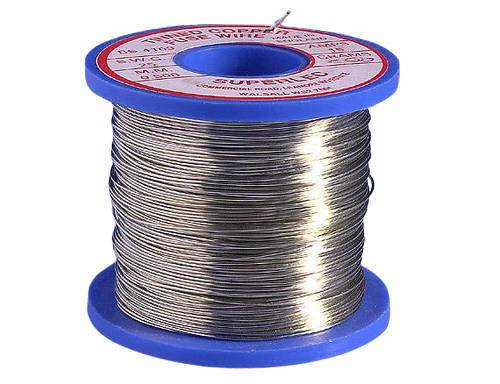ABC ELECTRICALS
Fuse Wire
Fuse Wire
Couldn't load pickup availability
Fuse Wire (Price Per KG)
Fuse wire is a thin, conductive wire used in electrical fuses as a sacrificial element. Its purpose is to provide overcurrent protection by melting and breaking the circuit in the event of excessive current flow, preventing damage to electrical equipment and mitigating the risk of fire or electrical hazards.
Here are some key points about fuse wire:
-
Material: Fuse wire is typically made of materials with relatively low melting points, such as tin, lead, or alloy compositions. The choice of material depends on factors like the required current rating and the specific application.
-
Current Rating: Fuse wires are available in different current ratings to match the electrical circuit's expected maximum current. The current rating indicates the amount of current the fuse wire can safely carry before it melts and breaks the circuit.
-
Melting Characteristics: The fuse wire is designed to melt when the current exceeds its rated value. This is achieved by selecting a wire material and diameter that will melt at a specific current level, known as the fuse's "blow" or "blow rating."
-
Sizing and Replacement: Fuse wire is typically supplied in spools or pre-cut lengths. When a fuse blows, indicating an overcurrent condition, the melted fuse wire must be replaced with a new one of the appropriate current rating. The correct gauge of fuse wire should be used to ensure proper protection and prevent damage to the circuit.
-
Application: Fuse wire is primarily used in older types of electrical fuses, such as cartridge fuses or fuse wire holders. It is commonly found in residential and industrial electrical installations to protect circuits, appliances, and other electrical devices from excessive current.
-
Safety Considerations: When working with fuse wire, it is essential to follow safety guidelines and ensure that the electrical power is turned off before replacing a blown fuse. Proper care should be taken to select the correct current rating for the fuse wire to prevent overloading the circuit or using an inadequate fuse.
It's worth noting that in modern electrical systems, traditional fuse wire has been largely replaced by modern fuse types, such as cartridge fuses or circuit breakers, which provide more convenient and reliable overcurrent protection. These modern devices are typically designed for easy replacement and offer additional features such as faster response times and selective coordination.
Shipping & Returns
Shipping & Returns
Shipping:
- Shipping depends on the product purchased. Not all products are shipped through courier. Some products or orders are also shipped through Transport.
- Shipping Charges may be applicable on some products.
Return Policy:
Please refer to our return policy here.




